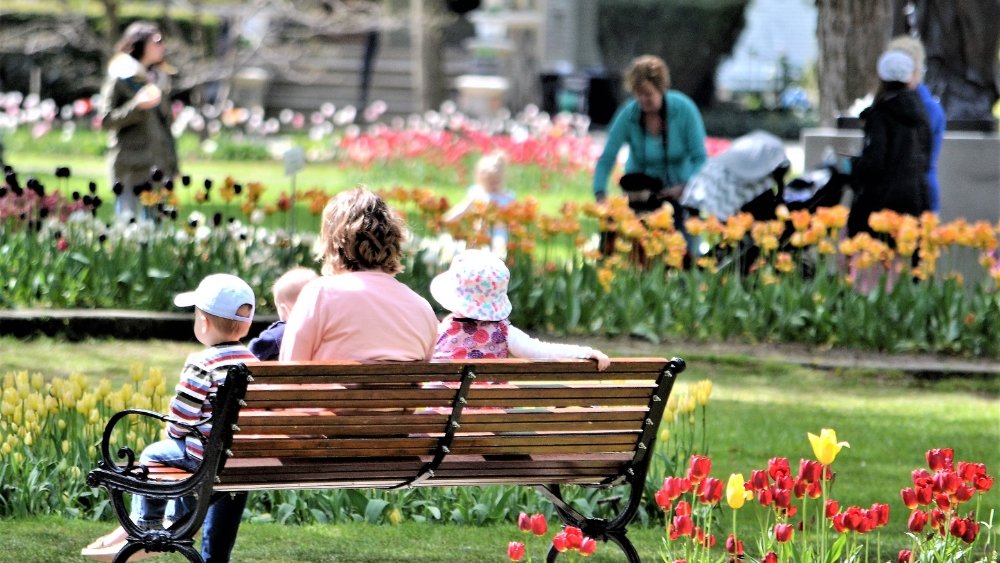In this episode, Norm is joined by Andrew and Anna Carley, Local Conversation leaders from Michigan. They discuss how they became one of the go-to groups that city officials turn to when they’re considering policy changes.
Read MoreWhen suddenly faced with paying his mortgage alone, Noah Tang of Bloomington, Illinois, went old school. He turned his spare rooms into monthly rentals for students in his college town. This helped him make ends meet and also helped him build community.
Read MoreLast Wednesday, a plane crash claimed the lives of 67 people, making it the deadliest U.S. air disaster in over two decades. It prompted an immediate, coordinated response on a local, state and federal level. And yet, when over 100 people die in car crashes a day, nothing is done. It’s time for that to change.
Read MoreEmily Hutcheson is a bike advocate in San Antonio, Texas, and a mom of three. She joins Tiffany on this episode of The Bottom-Up Revolution to discuss some of the initiatives she’s spearheaded to improve bike infrastructure in her city, including a bike club and bike bus.
Read MoreA privately funded megaproject in Chicago plans to redevelop parking lots into a walkable, mixed-use entertainment district. However, a history of disinvestment and fears of gentrification mean residents are fighting the project. Here’s how the developers could increase buy-in and integrate smoothly with the community.
Read MoreIn this episode, Abby and Chuck discuss a recent court ruling that confirmed Massachusetts has the authority to sue cities and towns that don’t comply with its multifamily zoning requirements near transit stations.
Read MoreSpencer Coyne is the mayor of Princeton, British Columbia. He joins this Bottom-Up Short to explain how he’s implementing the Strong Towns approach in his city, including how to incrementally reform a zoning code and how to do a lot with a small amount of funding.
Read MoreChuck discusses housing with Cullum Clark, director of the Economic Growth Initiative at the George W. Bush Institute. They talk about why there is so much resistance to new development and ways that officials and advocates could engage with the public to reduce that resistance.
Read MoreFor decades, we've been living under an unspoken grand bargain when it comes to housing. Most people don’t think about explicitly, but it shapes nearly every conversation we have about growth, change and affordability in our cities and towns. It’s time to change the conversation.
Read MoreWhen actor Timothée Chalamet got stuck in traffic on the way to a movie premiere, he showed that rethinking how we travel can lead to better outcomes for everyone.
Read MoreIn this episode, host Tiffany Owens Reed is joined by Ellie Riggs and Ryan Carter from Catawba Riverkeeper, a water-preservation organization. They discuss stormwater’s effect on the environment, how it’s connected to parking reform, and Riggs and Carter’s experience with advocacy at the state level.
Read MoreHere’s how Strong Towns Chicago is making its neighborhoods safer, more pedestrian-friendly and more inviting.
Read MoreIn this episode, co-hosts Abby Newsham and Chuck Marohn discuss the impact of natural disasters on the insurance industry, the feasibility of government-run insurance programs, and what this might mean for California in the long term.
Read MoreThe way we design our places forms a lesson in being in that space. Children learn important lessons from third places that bring us together — lessons they can’t learn in private spaces like yards that isolate us in the name of privacy.
Read MoreIn this episode, Local Conversation leader Michael Bassili explains how his group created a parking campaign that convinced their city council to eliminate parking mandates in their downtown.
Read MoreToday, I want to look at a utility investment near my hometown of Brainerd, Minnesota. At first glance, it seems like an extreme case, but looking at it with a touch of scrutiny reveals a lot of insight into why America’s basic infrastructure systems are failing and will not be maintained.
Read MoreIn this episode, Chuck discusses the common misbelief that an incremental approach to housing development is inherently slow, what that means for major cities, and how to make incremental housing more appealing to people who don’t want their neighborhoods to change.
Read MoreIn this episode, host Tiffany Owens Reed is joined by Matt Harder, the founder of a participatory budgeting company, to discuss the importance of resident input on city budgets and the process of implementing a participatory method.
Read MoreWhile long-term safety initiatives like updating street design standards or starting a crash response team are important, they must be paired with immediate action. A recent crash in Rochester, New York, shows why.
Read MoreA mysterious plastic sign appeared on a Houston street, raising the speed limit to 60 mph — double the actual limit. Drivers didn’t seem to notice the difference.
Read More



















